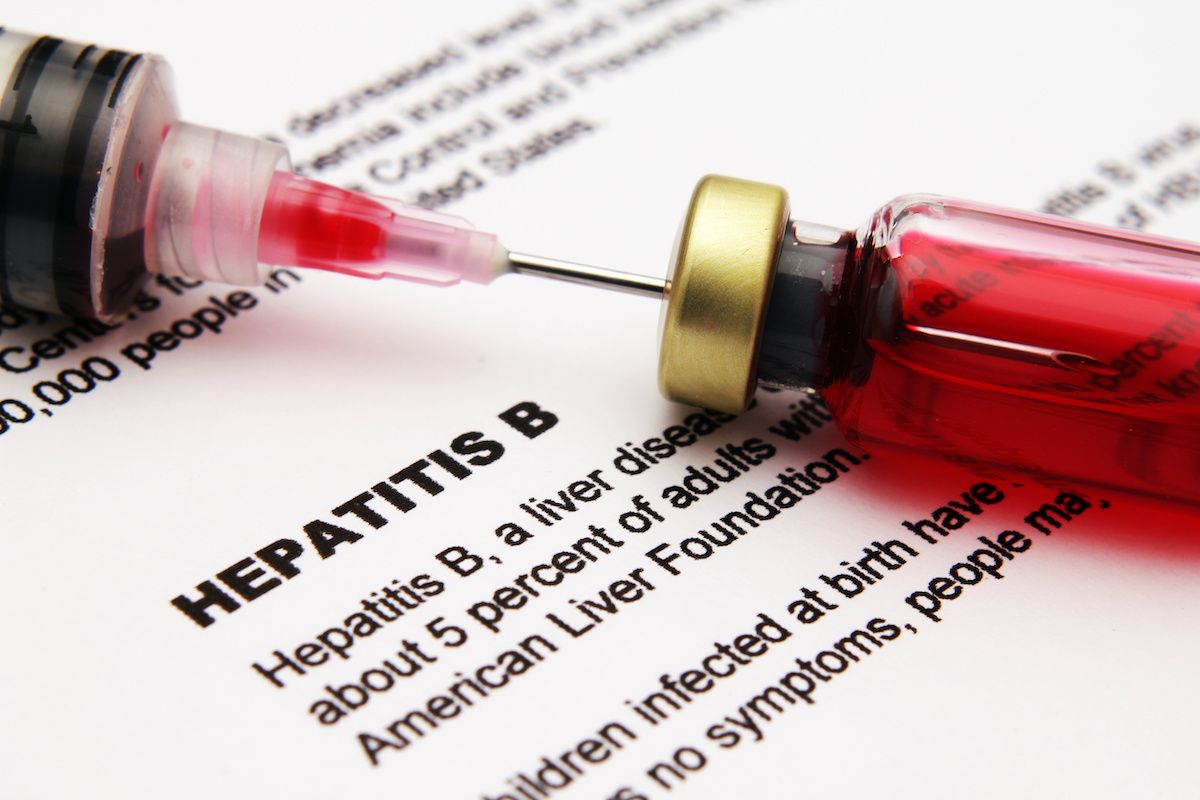Treated Hepatitis B Infection May Be a Positive Prognostic Factor in ... - AJMC.com Managed Markets Network

Patients with hepatitis B virus (HBV)–associated diffuse large B-cell lymphoma (DLBCL) who received antiviral treatment exhibited superior outcomes following treatment with rituximab, cyclophosphamide, doxorubicin, vincristine, and prednisone (R-CHOP) compared with patients with HBV-unassociated DLBCL, recent study results suggest.
Specifically, following treatment with R-CHOP, these individuals had a significantly longer time to progression (TTP) and overall survival (OS).
Findings were published in the journal Clinical and Molecular Hepatology.
Infection with HBV is a known risk factor for non-Hodgkin lymphoma, while previous research has shown chronic hepatitis B (CHB) is a key risk factor for DLBCL, authors wrote.
To better understand whether antiviral treatment mitigates disease progression or HBV-associated NHL or DLBCL recurrence, investigators carried out a retrospective study of patients presenting to 2 hospitals in South Korea.
All participants were diagnosed with DLBCL and underwent R-CHOP as first-line chemotherapy between 2012 and 2019. Any individual who was diagnosed with other malignancies 5 years before DLBCL diagnosis, had concurrent viral infections, or had completed an organ transplant was excluded from the study.
A total of 928 patients were included in the analysis and all individuals with CHB received antiviral treatment, authors explained. Of the patients included, 82 had an HBV infection and 846 did not.
CT or PET-CT were carried out to determine treatment response following six cycles of R-CHOP. After the last round of chemotherapy, a follow-up CT or PET-CT was carried out every three months for one year.
Patients had a median follow-up time of 50.5 months.
Analyses revealed:
- There was a longer TTP in the CHB group than the non-CHB group both before inverse probability of treatment weighting (IPTW; adjusted HR, 0.49; 95% CI, 0.29-0.82; P = .007) and after IPTW (adjusted HR, 0.42; 95% CI, 0.26-0.70; P < .001).
- The CHB group had a longer OS than the non-CHB group both before IPTW (HR, 0.55; 95% CI, 0.33-0.92; log-rank P = .02) and after IPTW (HR, 0.53; 95% CI, 0.32-0.99; log-rank P = .02).
- Liver-related deaths did not occur in the non-CHB group.
- Two deaths occurred in the CHB group due to hepatocellular carcinoma and acute liver failure, respectively.
Overall, patients with CHB exhibited a 51% to 58% lower risk of progression and had a longer OS and progression-free survival than those without CHB.
Before antivirals were developed, many patients with lymphoma "died of severe hepatitis caused by HBV reactivation," researchers explained.
However, thanks to antiviral prophylaxis, current guidelines suggest this treatment route for patients receiving chemotherapeutic agents like rituximab.
"Our study shows that current HBV infection is a favorable prognostic factor for DLBCL patients in the era of antiviral prophylaxis," authors wrote.
The positive outcomes seen in the current study could be due to the fact that lowering a patient's HBV viral load curbs HBV-driven antigen stimulation of B-cells. This can inhibit the lymphoma's progression or recurrence, researchers said.
Patients with a high HBV viral load also have dysfunctional innate and adaptive immune systems, contributing to decreased immune surveillance, but because antiviral treatment restores this surveillance, it lowers the risk of recurrent lymphoma, they added.
The retrospective nature of the study means selection bias may have been present, marking a limitation. In addition, because the analysis only included patients who underwent R-CHOP, those who completed different chemotherapies may exhibit different clinical outcomes than those reported.
"In conclusion, HBV infection was a favorable prognostic factor associated with a prolonged TTP, progression-free survival, and OS in HBV-related DLBCL patients who received antiviral medication prior to R-CHOP chemotherapy," authors wrote.
Reference
Park J, Chung SW, Lee YB, et al. Treated chronic hepatitis B is a good prognostic factor of diffuse large B-cell lymphoma. Clin Mol Hepatol. Published online May 17, 2023. doi:10.3350/cmh.2023.0057
Comments
Post a Comment